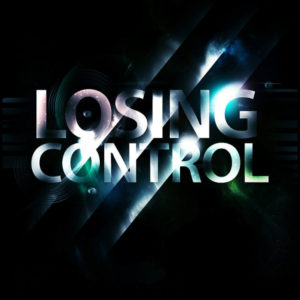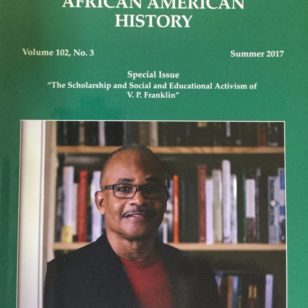
Embarrassingly False. Publishers are controlling types.
In her recent Statement to ASALH Members, Sharon Harley backs off the Big Lie that ASALH will make $100,000 in profit, or any profits at all. She also silently backs away from her promise to ASALH members that every member will receive a hard copy in their mailbox. These falsehoods, made to members in the Business Session, masked the truth–this decision not about money as they were told. Clearly, this proposed relationship is about status, not money. The regime will never admit this, yet what else is there? We have published a century by ourselves, but now, all of a sudden, we need someone to do it for us though there is no economic advantage. Must be status.
Now, like lots of people with stars in their eyes, the regime hears what it wants to hear, misunderstands much, puts the best face on countervailing information, and ignores all the warning signs. The regime denies that any control is lost if they take on a publisher. The claim is that ASALH will retain “absolute control.” ASALH will not retain anything close to absolute control. This is false, stunningly and embarrassingly false.
Publishers are shot callers. They pay the cost to be the boss. You keep your money in your pocket for production and promotion, and they pay those bills. They do not do this because they like you or love you. Nope, they do this to make money. Now they may be people of substance and put out a quality product, but they do mean to try to make money–or at least try. And to make money, baby, they need control, control where it matters.
Here is an image of the relevant section of the document Harley sent out, it covers two pages hence the gap.

Oops, no claim of “absolute control” in the quote from Chicago. Back up and read that quote again. Nothing about absolute control in that quote, so the good professor used a block quote that does not support her claim.
That passage says ASALH will own the journal and its copyright. Sorry to say, but that qouted passage says nothing about control. Gee, why?
In the following ways, ASALH will not have “absolute control.”
-
They control your past intellectual property and get a form of “reverse reparations.”
In the agreement, ASALH does own the copyrights of things published. This much is true. Yet anyone who has signed on with a publisher knows you do not control that copyright for the period you sign away. While the contract is in force, ASALH gives up control over the copyrights material–past and present. Here this, Chicago will control the copyrights of everything the Journal of African American History has ever published. That’s right, they will control and make money from articles published by Woodson and his generation of scholars in the 1940s. Yes, they will control the past and the present of the content ASALH provides. Yes, ASALH is best seen as content providers, and we will be paying reverse reparations to the University of Chicago. As if Woodson owed Chicago, they will make money from work they never performed. Man, Big Papa is paid for the labors of your father. What did Woodson do to Chicago? 22% of the revenue Chicago has promised you comes from your intellectual property, and you currently make that money without Chicago. They want half of that for getting together with you.
-
ASALH will not control the pricing.
Chicago will set the price not only to institutional subscribers, but also to individuals. This will apply to current and past issues.
-
ASALH cannot do giveaways at the cost of printing.
- You cannot print out extra copies at printing cost and give them out to schools, branches, and community members. No, no more of that nonsense. Because we are not an academic organization, this is vital to us. We exist for our community, not the profession. Chicago is all about the academy and their business model reflects that.
- You will have to pay the amount your publisher dictates to give away special issues or any issue of JAAH.
-
ASALH cannot partner with sponsors and make 100% of the revenue
If you have a sponsor, as we have had in the past, that wanted 500 journals to give away to the community, you cannot have more printed at cost and walk away with 100% of the revenue. No, that senario now has to be worked through with Chicago. Your journal is a Chicago Journal sponsored by you, not published by you. There is the hard cold reality. Now, the boss man might be willing to do a special run and share the profits with you per your agreement, but how the costs are allocated in such a circumstance is not spelled out in the agreement. You see, Chicago does not have another organization like ASALH so they don’t have his boilerplated, and your attorneys at ASALH, well, they know less about your business than you do.
-
ASALH will not control permissions nor the revenue.
- Permissions by authors to republish their works would come from the University of Chicago Press as the publisher, not us. The terms of their use will be determined by Chicago, not us.
- Scholars who have published with us in the past, let’s say a decade ago, will still go to Chicago for permission to use their articles. It will be Chicago’s call on how they deal with our authors and their prospective publishers. ASALH will become alienated from its members.
- ASALH will not control permissions to other publishers who want use ASALH’s intellectual property. If some company wanted to include an essay from the journal in an edited collection justifying disenfranchising black folks, it would be Chicago’s decision, not our. As CUP states on their own website, “The University of Chicago Press can grant permission only for material copyrighted by the Press or the journal’s sponsor.” So, they would have control over permissions, not us.
- Will Chicago allow electronic publications to carry our articles? Is this good? Do these publishers who use the material electronically via Chicago hurting the value of our catalogue? Not to worry, baby, it ain’t your problem.
- In general, for no added value, Chicago will reap %50 percent of revenue. Wow!
- Permissions by authors to republish their works would come from the University of Chicago Press as the publisher, not us. The terms of their use will be determined by Chicago, not us.
ASALH could not control any other decisions that the University of Chicago Press makes about our content.
-
Chicago would exercise vital forms of control over the new issues of the journal. Control is not all about content.
- While Chicago promises control over content, they do, as all publishers do, decide how much content. The Chicago proposal does not say how many pages will be in each volume, but they will not be unlimited. The idea that the proposal does not spell this out speaks volumes about the state of the negotiations. A six-hundred page volume would cost roughly two-thirds of one nine hundred pages as many costs are tied to page-count. Chicago has promised to pick up production costs–but is it limitless? Of course not. So there is no absolute control when you are not paying the cost to be the boss.
- If Chicago wanted to put out a volume that contained articles from the Journal of African American History and other publications, it could. It would be Chicago’s call. They would split the royalties 50%.On the other hand, ASALH could not decide to do a special publication on something such as financial literary or the history of black women in business based on articles from the past twenty years. No, that decision would belong to Chicago. They would have control over the intellectual property. And if they agree to publish it, or allow it to be published by someone else, they would share in the revenue.
When you are a glorified content provider, people will see you for that.
For a century, black people and the broader community has seen you as independent, and as such they see you as the folks who speak truth about black people–often against the white establishment. Well, you may see yourselves that way as board members and editors, but the rest of the world will no longer get that image. And because we are not an organization with both feet in the academy, this matters.
- Many black people will see you as serving the wrong god. You will branded as a “University of Chicago Press journal,” and that is not the gold standard for black folks.
- When you go to the public to raise money, they will not give you sponsorship money for a journal published by the wealthy university.
- Rank-and-file people are not giving you money for a journal published by white folks. In the 1930s, Woodson went to the black community and said support us. Those who know you have a publisher won’t give. And hell, you can’t even promise a donor a free copy of the journal for their donation! The other day when the present of ASALH sent out an annual fund email looking for money based on JAAH, I laughed. She does not understand the consequence of selling out.
Would we really have absolute control over what Chicago publishes in the journal?
The honest answer to this question would be that we do until the University of Chicago steps in for some reason and says they cannot risk letting something be published. As publisher, they are subject to laws and public pressure. If, for instance, someone finds what our editors plan to publish offensive and threatens to sue Chicago or to not donate money to the university, ASALH will find that it does not have absolute control over content. So no publisher can make you an ironclad promise of our having absolute control over content.




